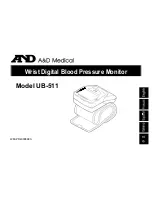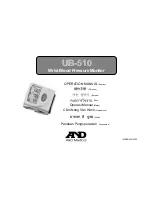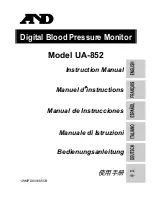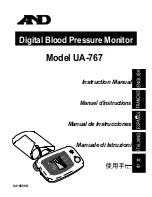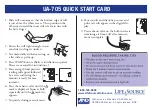
21
English
Video equipment connection
11
7
8
9
10
1 SERIAL IN:
SERIAL Input Terminal
Control the Display by connecting
to PC.
(see page 24)
2 LAN:
LAN Terminal
Control the Display by connecting
to Network.
(see page 90)
3 AUDIO OUT:
Analogue Audio Output
Terminal
Connect to audio equipment with
analogue audio input terminal.
(see page 26)
4 AUDIO IN:
Analogue Audio Input Terminal
(see page 23)
5 PC IN:
PC Input Terminal
Connect to video terminal of PC,
video equipment with “YP
B
P
R
/
YC
B
C
R
” or “RGB” output.
(see page 23)
6 HDMI IN 1,
HDMI IN 2,
HDMI IN 3:
HDMI Input Terminal
(2 systems)
Connect to video equipment with
HDMI output. Also, the HDMI
IN 3 terminal outputs audio
by connecting it to an ARC-
compatible device.
(see page 22)
7 USB:
USB Terminal
Connect the USB memory to use
“USB media player” or “Memory
viewer”. Also, this can be used to
supply power of up to 5V/max 1
A to an external device when the
picture is displayed.
(see page 27)
8 USB-C HOST:
USB-C terminal
Connect a PC or video equipment
that has a USB-C terminal. Also,
this can be used to supply power
of up to 60 W to an external
device when the picture is
displayed.
(see page 28)
9
USB DEVICE
:
USB terminal
USB communication with devices
connected to the USB-C HOST
terminal is possible. Also, when
the USB memory is connected,
the “USB media player” or
“Memory viewer” function can be
used. Also, this can be used to
supply power of up to 5 V/max 2
A to an external device when the
picture is displayed.
(see page 28)
10 IR IN,
IR OUT:
Infrared Signal Input / Output
Terminal
Use this when operating more
than one display with one remote
control.
(see page 26)
11 SLOT:
Expansion slot
(see page 14)
Note
●
For the compatible function board, consult the dealer
where you purchased the product.












































